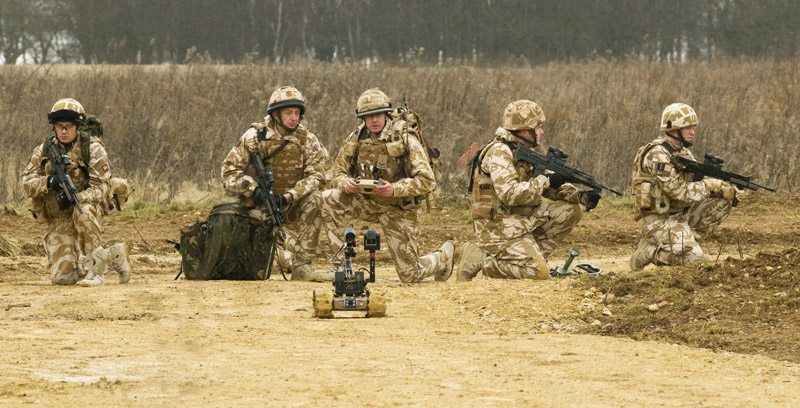Meeting in Brussels from 2 to 4 March, NATO Nations identified a number of specific areas where groups of nations could pool acquisition, training and research efforts, in order to counter the continuing threat posed by improvised explosive devices (IEDs), the biggest killer of NATO troops.
The participants identified 47 specific areas where a multinational approach will bring lower costs, greater efficiency and effectiveness.
Areas range from joint acquisition of material such as ‘jammers’ against remotely controlled IEDs and entry control point sensors, to joint development and testing of new technologies, to common standards, and cooperation on training.
“Defeating the threat of IEDs in current and future conflicts is of critical importance to the Alliance. We need to focus on identifying opportunities for multinational cooperation, as a significant step towards meeting the IED challenge in a cost-effective and timely manner,” said NATO’s Deputy Assistant Secretary General for Armaments, Richard Froh, in his opening address at the workshop.
The packages are scalable and flexible, allowing Nations to focus on a specific area of interest, avoiding the need for ‘one size fits all’ solutions.
‘Smart defence’ in action
The meeting, held in the framework of the Alliance’s C-IED Action Plan, was organised by NATO’s Defence Investment Division and co-chaired by the NATO Consultation, Command and Control Agency (NC3A).
Many potential projects could be implemented in the 2011-2012 timeframe; others look into common research and development efforts for future capabilities.
This event follows a previous workshop, organised by the NC3A in November 2010, which identified a number of areas where Nations could benefit from greater multinational cooperation.
“We cannot ensure our security just by spending more money – because the money simply isn’t there. We need a new approach: Smart Defence – ensuring greater security, for less money, by working together with more flexibility,” said NATO Secretary General Rasmussen in a key policy speech at the Munich Security Conference, where he called for multinational defence cooperation.
The meeting was attended by more than 50 national experts providing first-hand experience from 16 nations, as well as experts from NATO’s C-IED Task Force led by Allied Command Transformation. National Armaments Directors will discuss the workshop findings at their meeting at NATO Headquarters on 7 April, with a view of developing a Roadmap guiding future implementation.










